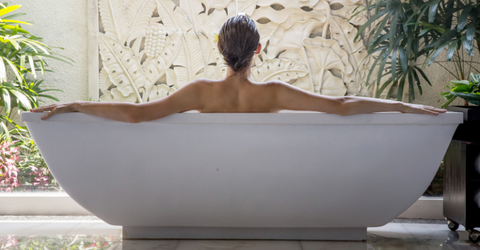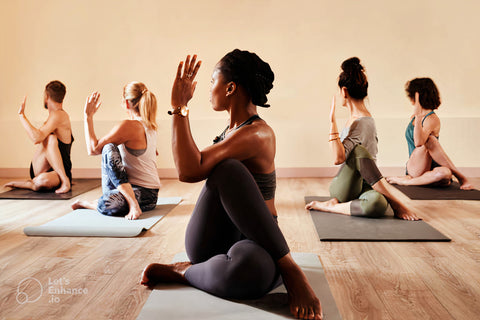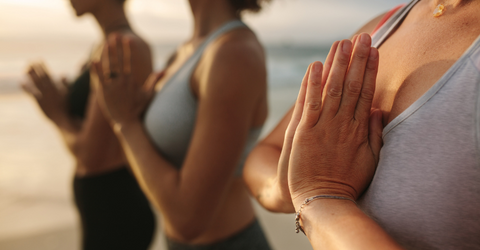A good day starts with a positive mindset. In a world brimming with tension and stress, self-care has emerged as the ultimate act of self-love.
In order to keep yourself stress-free there are certain stress-relief activities. Some go to gyms and some prefer shopping. The concept of self-care is something that we’ve been hearing a lot lately. From pampering baths to nourishing rituals, prioritising your well-being is essential for a balanced, joyful life. But what exactly is self-care, and how can you incorporate it into your daily routine? Join us as we explore the art of self-care and unveil the secrets and tips to a happier, healthier you.
What Is Self-Care?
Self-care is defined as «a multidimensional and multifaceted process of engagement in purposeful healthy activities that will enhance well-being». In simple words doing things for yourself that makes you feel good. The key to a meaningful long lasting self care is to practise self love and prioritise how to take care of yourself on a deeper level. The term describes some actions to improve physical, mental, and emotional health.
There are different forms of self-care you can adopt. Self-care is caring for oneself in different domains that are mind, body, and spirit, fostering a sense of inner peace and harmony. Some prefer sleeping and others like taking fresh air. However, some people view self-care as a luxury lifestyle rather than a priority. Whether it's carving out time for meditation or indulging in your favourite hobby, self-care is all about prioritising your needs and embracing the power of self-love.
Types of Self-Care
Self-care comes in many forms, each catering to different aspects of your well-being:
- Physical Self-Care: Nourish your body with movement, rest, and nourishing foods.
- Social Self-Care: Cultivate meaningful connections and foster a sense of belonging.
- Mental Self-Care: Nurture your mind with mindfulness practices and positive affirmations.
- Spiritual Self-Care: Connect with your inner self through meditation, prayer, or reflection.
- Emotional Self-Care: Honour your feelings and practice self-compassion and acceptance.
By embracing a holistic approach to self-care, you can create a balanced, fulfilling life that nourishes every aspect of your being.
Why Is Self-Care Important?
According to the World Health Organization (WHO), self-care is essential as it promotes health, prevents disease, and enhances overall well-being. You might have heard the famous phrase self-care is self-love.
By prioritising self-care, you can reduce anxiety and depression, reduce stress, improve your happiness, increase your energy and make your interpersonal relationships stronger.
From boosting your immune system to strengthening your interpersonal relationships, the benefits of self-care are truly transformative.
Top 6 Self-Care Tips
Ready to embark on your self-care journey? Here are six simple yet powerful tips to help you prioritise your well-being:
1. Develop a Don’t Do List
Identify activities that drain your energy and create a 'don't do' list to free up space for what truly matters.
Don’t do list is a secret sauce of self-care. Making a Don’t do list is those activities that drain your energy or make you feel down. You need to identify those actions or thinking and put that in a list. Developing a Don’t do list will free up space for other important things in your life.
Everyone has a different Don’t do list that will help you make an effective self-care strategy. So, take a pen and consider all the things, even the small ones.
2. Good Sleep, Good Eyes
Ensure you get quality sleep to support your immune system and overall health.
When it comes to health the most important thing other than good is proper sleep. For keeping your immune system healthy, good-quality sleep is mandatory. There are some parts of the immune system that will only respond if you get good-quality sleep. Sleep deprivation will cause stress and anxiety. Your brain needs sleep and rest to function properly. If you don’t sleep properly you will feel irritation.
Good sleep is also a physical self-care, sleeping technically fuels your body. Caring for your physical needs is self-care. When it comes to physical self-care the first question that you should ask yourself is «Are you getting enough sleep?»
3. Take a Nourishing Bath
Relax and unwind with a luxurious bath to de-stress and rejuvenate your body and mind.
You might not think this tip is effective and important but it is. According to surveys and research, we feel good and relaxed after taking a warm bath. It helps de-stress after a long day. Taking a nourishing bath relieves stress, don’t count out also the soothing effect on the body which helps unwind tights or sore muscles, the water also helps to cleanse our bodies and mind from the stress we are carrying.
4. Yoga Day for Healthy Skin
Embrace the healing powers of yoga to promote flexibility, strength, and inner peace.
Yoga is not only a physical self-care but it is also a spiritual self-care. Yoga does not only help you reduce your stress but it is also good for the body's muscles since your body will become flexible. Overall, yoga is great for body fitness and for your skin. There are different forms of yoga, you just have to practise them and perform them in the right way.
Yoga promotes a healthy lifestyle, cleans all the impurities and negative thoughts from your soul, mind, and body.
5. Eating Healthy for Healthy Skin
Nourish your skin from within by incorporating antioxidant-rich
Eating fresh fruits and veggies in a day will keep your mind, body, and skin healthy and glowing. Adding high-antioxidant foods is also a medicine against many diseases. Antioxidant foods are very important to stabilise the cells. They protect them from oxidative stress and other things like cancer, heart disease, and eye diseases.
According to 2018 research, bananas, apples, leafy vegetables, and critic fruits are great for healthy skin.
6. Meditation
Clear your mind and soothe your soul with regular meditation practice to reduce stress and enhance your well-being.
One thing that can help you change or relax your mindset is meditation. Meditation helps you forget all the negative thoughts and thinking and will allow you to focus on the present. Meditation has been proven very beneficial for reducing stress, and anxiety, regulating your mood, and even motivating you for doing productive activities. Meditation is the best way of doing self-care.
Many different types of meditation will physically relax your body. You can find plenty of examples online and can learn about several types of meditation. Like self-care, meditation is different for everyone.
Develop Your Own Self-Care Plan
Ready to design your own self-care journey? Start by evaluating your daily needs, identifying stressors, and devising strategies to prioritise your well-being. Whether it's scheduling regular self-care activities or setting aside time for relaxation and rejuvenation, creating a personalised self-care plan is the first step towards a happier, healthier you.
A self care plan includes self care activities that promote an overall well being. Tell how practising self care can impact every aspect of your life whether it's social, professional, spiritual. The plan must include physical activities, spending time with people we love, gratitude etc. To create the plan you must brainstorm all the activities that help you relax and rejuvenate and add them to your daily, weekly or monthly routine.
There are some areas in life that need extra attention and self-care. In order to make an effective self-care plan here are some factors that you need to consider :
- Evaluate your daily needs
- Consider your stressors
- Devise self-care strategies
- Plan for challenges
- Schedule time to focus on your needs





Comments (0)
There are no comments for this article. Be the first one to leave a message!